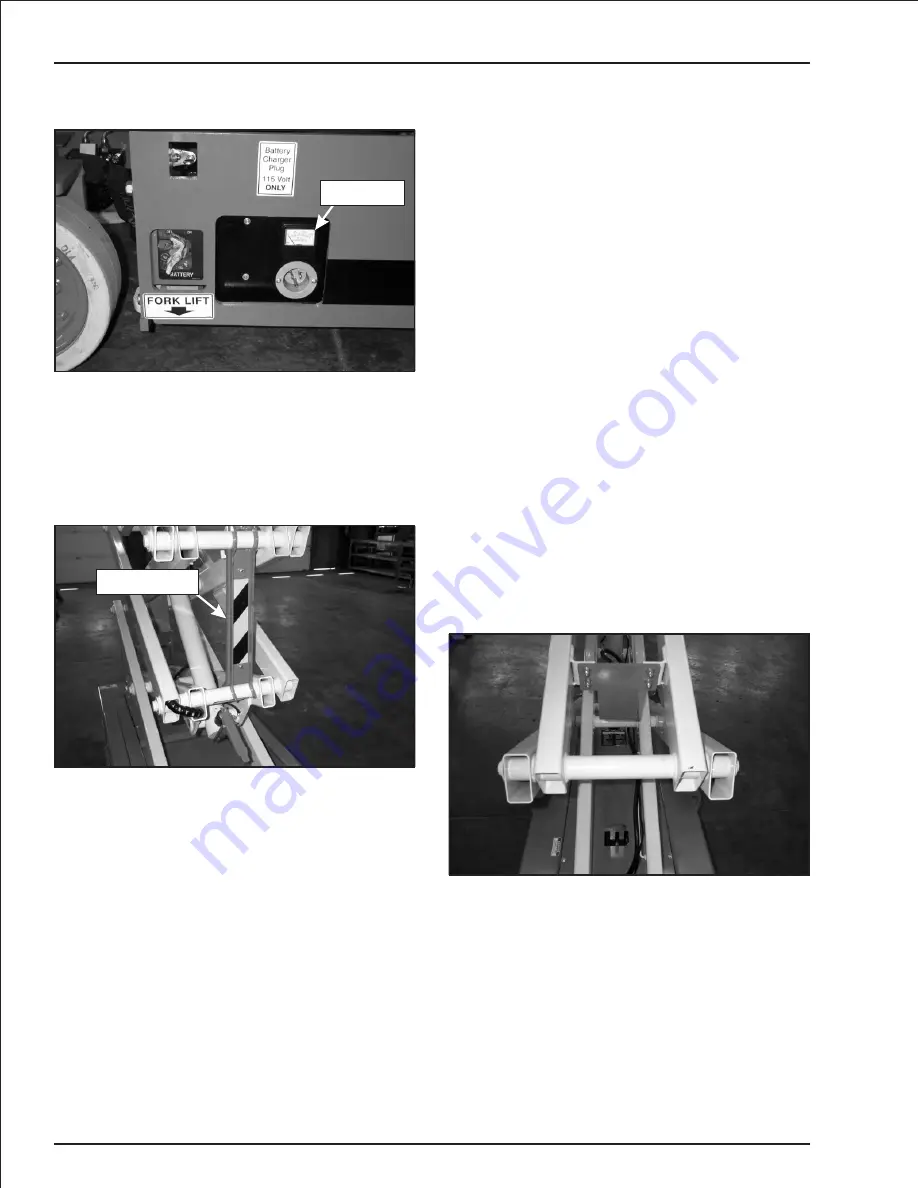
3. Observe the reading on the ammeter. The reading
should be 20 amps.
Figure 8.3—Battery Charger
4. Unplug the charger.
Safety Prop
Using the lower controls, raise the platform until the
open height between the arm pins is wide enough to po-
sition the safety prop. Refer to Figure 8.4.
Figure 8.4—Safety Prop
Swing the safety prop downward from the storage posi-
tion to the support position. Inspect the safety prop for
damage and deformation. Check for cracks in the welds
that hold the handle and the support channel onto the
tube.
Always use the safety prop when the platform is raised
during inspection and maintenance.
Pinch points exist on the scissors structure. Death
or serious injury can result if the scissors structure
drops onto personnel working within the scissors
arms or under the raised platform. Properly posi-
tion the safety prop before reaching through the
scissors structure.
When inspecting or servicing the aerial platform with
the platform raised, use the following procedure to prop-
erly position the safety prop.
1. Remove all tools and material from the platform.
2. Using the lower controls, raise the platform until the
open height between the arm pins is wide enough to
position the safety prop. Refer to Figure 8.4.
3. Swing the safety prop downward from the storage
position to the support position.
4. Remove hands and arms from the scissors struc-
ture area.
5. Lower the platform until the scissors are supported
by the safety prop.
Use the following procedure to stow the safety prop.
1. Using the lower controls, raise the platform until the
open height between the arm pins is wide enough
to position the safety prop.
2. Swing the safety prop up to the stowed position.
Cables and Wiring Harness
Inspect all cables and wiring for wear and/or physical
damage such as loose connections, broken wires, and
frayed insulation. Check the wiring in areas where a
change in routing direction may cause them to become
pinched (refer to Figure 8.5). Make sure the cables and
wires are properly routed to avoid sharp edges, pinch-
ing, and scuffing.
Figure 8.5—Cables and Wiring Harness
Hydraulic System
Hydraulic power is supplied from a single stage hydrau-
lic pump with a 4.25 horsepower DC electrical motor.
Hydraulic fluid escaping under pressure can have
enough force to inject fluid into the flesh. Serious
infection or reaction can result if medical treatment
is not given immediately. In case of injury by escap-
ing hydraulic fluid, seek medical attention at once.
8 - 2
S1930 – 0361266
Chapter 8. Prestart Inspection
A
DANGER
A
DANGER
Safety Prop
Ammeter






























